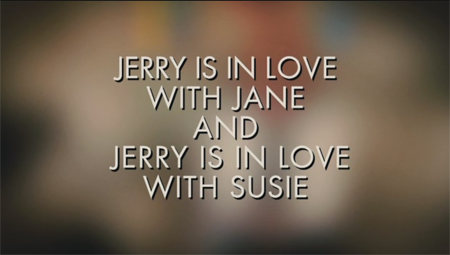Blogger Kit O'Connell has launched an Opening Up read-along! O'Connell is encouraging readers to follow along in Opening Up and engage in discussions about the various chapters -- and non-monogamy in general.
Here's how it will work: each week or so, O'Connell will post about a new section of the book and his thoughts on it, using that as a launching pad for more broad discussion of non-monogamy. He will also share his own experiences in the polyamorous lifestyle.
In this first post, O'Connell writes about the introduction in Opening Up:
In addition to talking about her background and the creation of the book, the introduction to Opening Up takes a look at the state of relationships in our culture today. Most of us grow up believing that lifelong monogamous marriage is not only the current default, but always has been for everyone . . . Countless events (the Stonewall riots), technological developments (birth control), and cultural changes have shown that there is no normal relationship and a lifetime of emotional & sexual monogamy is a rarity and not always a worthwhile or realistic goal.
. . . Opening Up attempts to cover a wide gamut of relationship styles, from polyamory of many kinds, to swinging, to pairings where one person is monogamous and the other poly. It has chapters devoted to major issues which confront us as we explore these new relationship styles, and profiles of how others have shaped their relationships. Remember as we go through this book that, quoting the author, "there is no formula for an open relationship." There is not even one definition of polyamory. Instead, approach your relationships as you would a toolbox -- choose from what works for you and your lovers, without worrying about what you perceive as normal.
The read-along will continue next Thursday, January 26th, with chapter 1, which examines the history of non-monogamy since the 1950s. Go contribute your voice to the discussion and follow along on O'Connell's blog, Approximately 8,000 Words.



 As the Occupy Wall Street movement continues throughout the U.S., writer Rachel R. White took to Zuccotti Park in lower Manhattan and
As the Occupy Wall Street movement continues throughout the U.S., writer Rachel R. White took to Zuccotti Park in lower Manhattan and